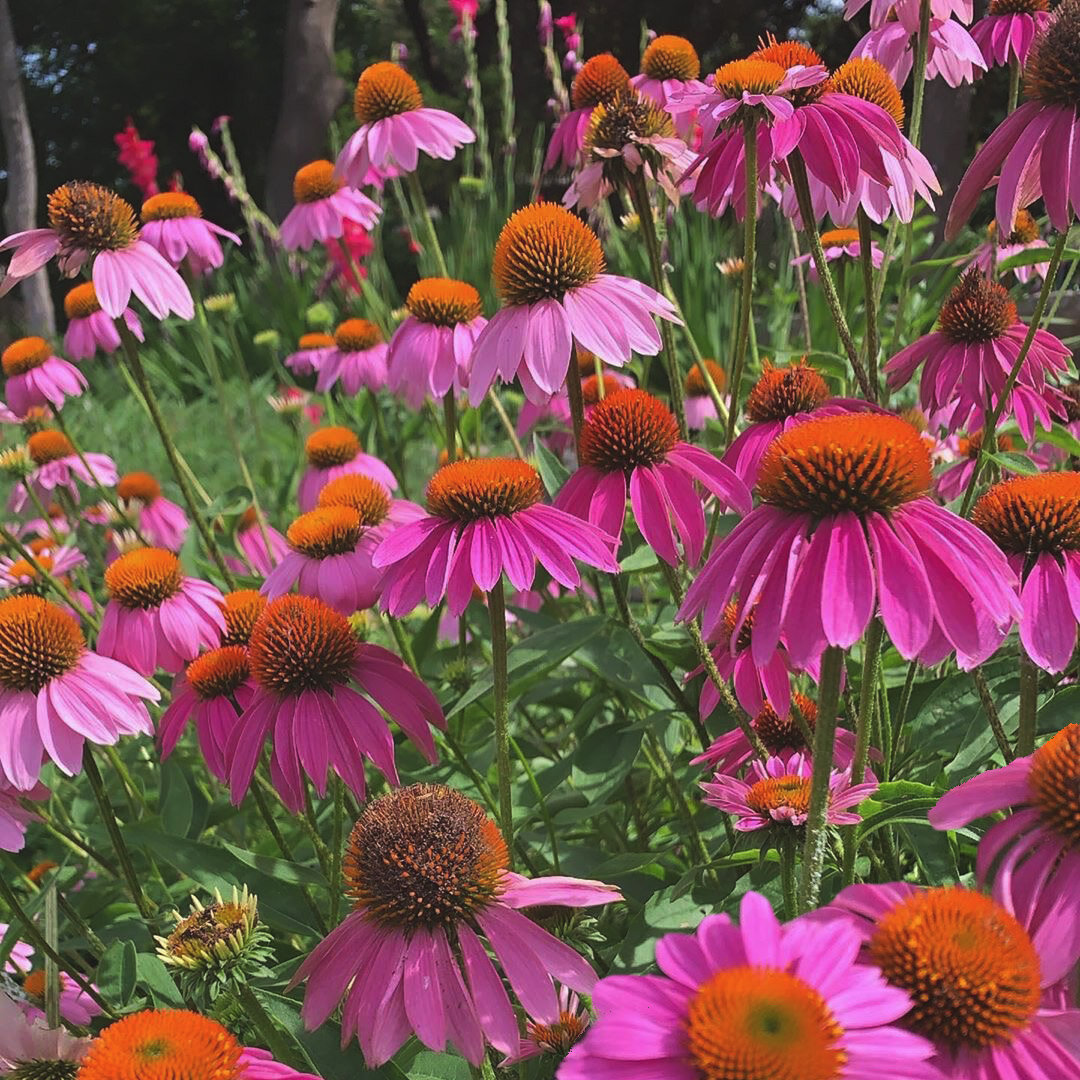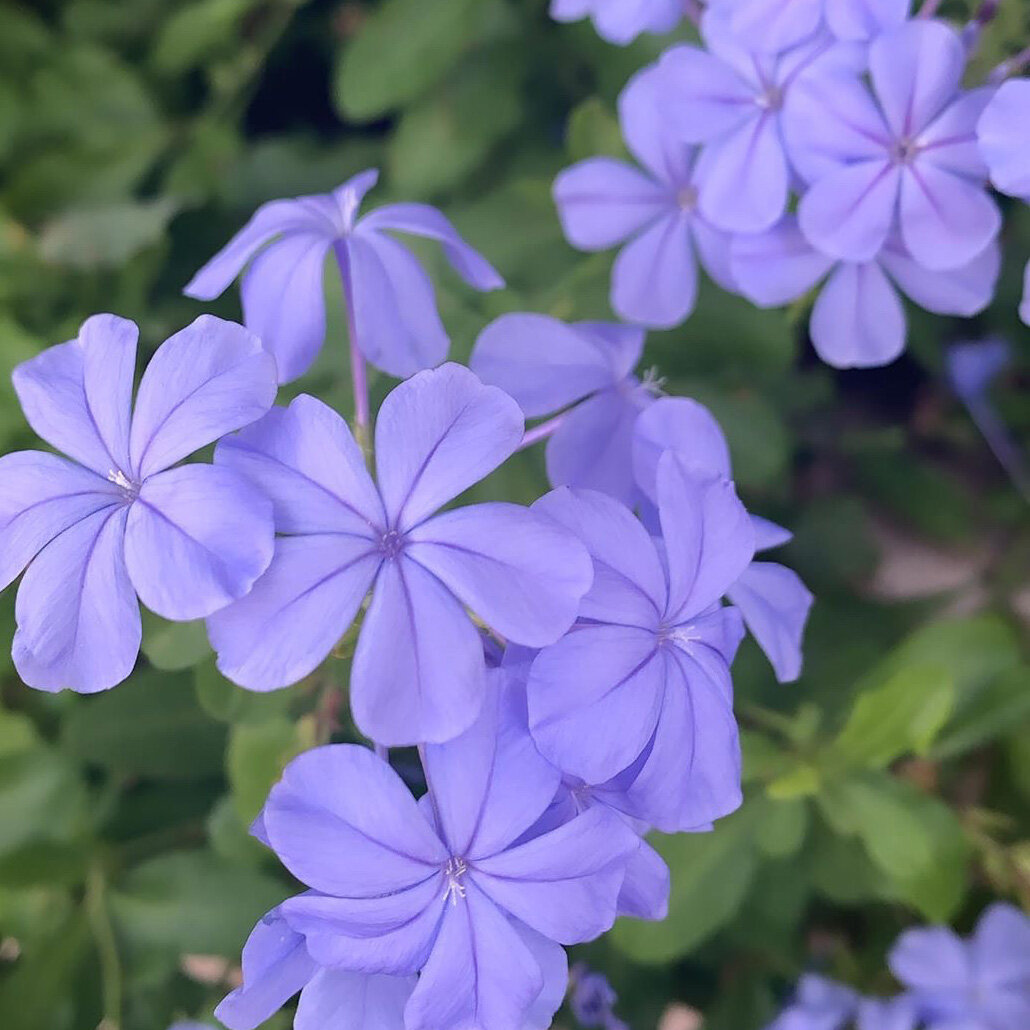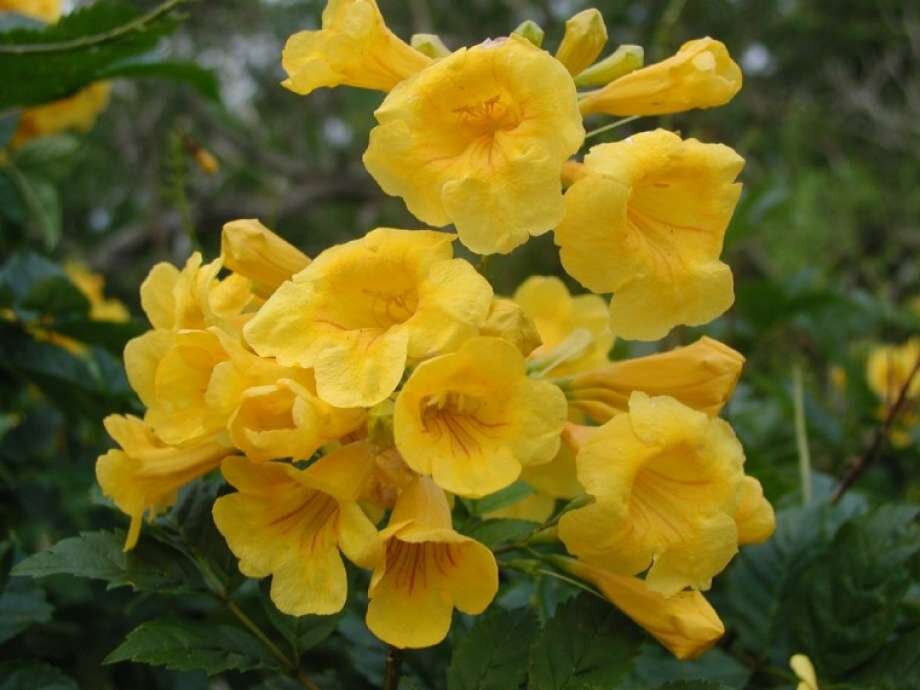Texas Native Pollinator Garden
Add these Joy Max perennial selections to create lasting structure and interest in your landscape while also attracting bees and other beneficial insects. Remember with perennials, the tops may die completely to the ground in the winter, but the roots continue to live and the plant will re-grow itself in the spring.
Be patient with them. There is an old saying about herbaceous perennials, “Year one they sleep, year two they creep, and year three, they leap!” Helping them grow healthy roots the first couple of years make for a lasting, happy plant that can dramatically change your garden for the better.
❋ ❋ ❋
Trailing Lantana L. montevidensis is an absolute trooper. Butterflies love it and it is not only hard to kill even in our scorching summers, but it blooms pretty much all year round. Most commonly seen in orange, yellow, and purple, but there are some wild, tie-dyed versions too. Not edible, the sap is poisonous. Evergreen. Can be invasive so keep an eye on it.
Purple Coneflower Echinacea purpurea One of my absolute favorite plants in the world. Easy to grow from seed to make for dramatic mass plantings if you are willing to wait six months or so for the first blooms. Will get dramatically larger in the second and third years, and may grow up to 4’ tall. Edible. Medicinal. Many other colors of coneflower are out there. Some of my faves are PowWow Wildberry, Sombrero, White Swan, Rainbow Marcella
Pride of Barbados Caesalpinia pulcherrima A much loved perennial, you see it all over Austin in the summertime. They need full sun and well-drained soil but will reward you with beautiful blooms all summer long. They do get about 4-6’ wide so make sure to give them room to grow. Younger plants take a little while to come back in the spring, so don’t freak out thinking they are gone forever. Not edible.
Blue Plumbago Plumbago auriculata This gorgeous purplish blue perennial is most usually sold as a shrub, growing 3-8 ft tall depending on sun exposure. It blooms even in part shade and is crazy stunning planted in mass. Not edible. Protect from frost.
Esperanza Tecoma stans is known for its dramatic “yellow bells” that contrast handsomely with its deep green foliage. Esperanza does well even in the harshest summer sun as long as it has good drainage. Grows up to 6’ tall so make sure you place it at the back of a border or where it won’t shade out your other plants. It re-seeds freely. Not edible.
Salvia greggii A. GrayAutumn sage, Cherry sage, Greggi salvia This is an absolute workhorse of the Texas native pollinator garden. Once established, it is drought tolerant and will grow happily without any attention. 2-3’ tall, it’s a low mounding perennial that comes in many colors, all loved by hummingbirds. Do not fertilize once established. It is in the mint family and the leaves and the flowers are edible!





